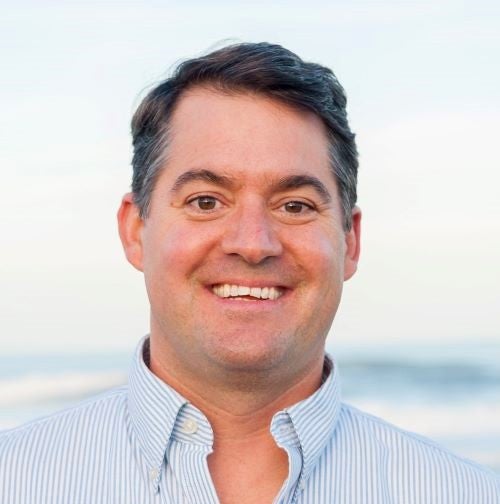GSO professor J.P. Walsh co-PI a new NSF grant to bridge international expertise and communities around mangrove/seagrass ecosystems
Ecosystems and communities bordered by mangroves and seagrass meadows are critical to coastal protection and support economies in many parts of the world but are threatened by human activity and global climate change.
In January, URI researchers launched an effort to improve data and predictions to reverse mangrove and seagrass habitat loss in frontline communities. Led by Emi Uchida, Ph.D., URI professor of environmental and natural resource economics, the Global Center for Blue Climate Solutions has established a team of social, natural and data scientists and engineers with engaged international communities. The goal is to accelerate inclusive science and education, harness data, and implement AI, all in support of informed and equitable decisions for mangrove and seagrass conservation and restoration.
Funded through the National Science Foundation Global Centers: Use-Inspired Research Addressing Global Challenges in Climate Change and Clean Energy, Blue Climate Solutions will use $250,000 over a two-year period to collaborate internationally to design a new global center for research on blue solutions for climate change.
“Our vision is to establish Blue Climate Solutions as a global leader in inclusive and transdisciplinary science for mangrove and seagrass conservation and advance evidence-based decision making,” says Uchida. “This two-year phase will allow the team to establish international partnerships and develop a robust scientific infrastructure to launch the Global Center.”
Uchida is joined by co-principal investigators at URI, Abdeltawab Hendawi, Ph.D., assistant professor of data/computer science; Lisa Hiwasaki, Ph.D., assistant professor of international development; and J.P. Walsh, Ph.D., professor of oceanography (GSO) and director of the URI Coastal Resources Center. Additional partners are: co-principal investigator David Lagomasino, Ph.D., assistant professor of coastal geology at East Carolina University, and Kristin W. Grimes, Ph.D., assistant professor of watershed ecology at the University of Virgin Islands, Divergent Science LLC, and the URI Coastal Institute. International partners in Indonesia include the University of Papua and Indonesia Climate Change Trust Fund.
Specifically, the future Global Center aims to understand mangrove and seagrass losses and gains and predict “at-risk” areas; to quantify benefits of these habitats for climate resilience; and design and test the impact of innovative policies and practice with empowering research conducted through Indigenous peoples and local communities. The future Global Center will have two physical centers (URI and University of Papua in Indonesia), with a virtual network of U.S. and international partners, including those in the Asia Pacific and Sub-Saharan Africa regions, and Australia to integrate and leverage best-in-class global expertise.
“No one discipline alone will tackle the wicked coastal problems involving mangroves, seagrasses, and the communities that depend on them,” says Lagomasino. “I am excited to be part of this unique team that has been brought together for the Blue Climate Solutions Center with the goal to address key concerns that link people and place, satellite data with AI, and science with local decision-making.”
The future center is envisioned as an incubator for transdisciplinary research, coupled with earth observations involving citizen science and local and Indigenous knowledge. The team will conduct a proof-of-concept study to develop AI techniques to predict areas of habitat loss, project changes in carbon and ecosystem benefits, and design potential solutions with stakeholders, with an emphasis on Indigenous Peoples and local communities and youths in Indonesia as citizen scientists.
“I am thrilled to have this opportunity to work with Indigenous Peoples and local communities in West Papua,” Hiwasaki says. “Their local and Indigenous knowledge is integral to improve their capabilities, but such knowledge is often overlooked.”
Graduate students and scholars in the U.S. and Indonesia will participate in a Team Science certificate program, an international seminar series and a culminating Knowledge Convergence Workshop in Indonesia to advance these goals in the planning stage.
“I am excited about this new collaboration with partners in the U.S. and Indonesia. This collaboration builds on URI’s half a century of partnership and knowledge exchange with Indonesia,” Uchida explains. “Together, we will be pushing the boundaries of transdisciplinary research.”

